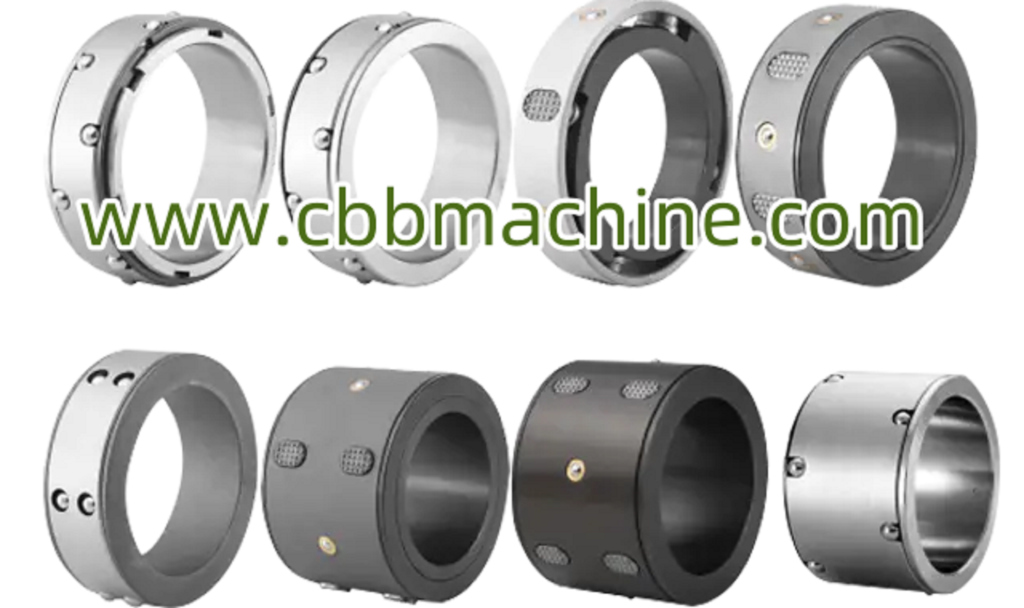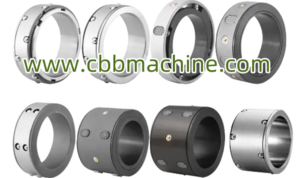Industries That Benefit Most from Differential Shaft Suppliers


Shayuan village, Nanbin street, Ruian city, Wenzhou Zhejiang Province 325206
Business Support
+8615558888956
eaioni393@gmail.com
https://www.cbbmachine.com/
Added on 16 May 2025
Shayuan village, Nanbin street, Ruian city, Wenzhou Zhejiang Province 325206
Business Description
Precision and Performance: Choosing the Right Differential Shaft Supplier
Finding a reliable Differential Shaft supplier is essential for companies involved in web handling, slitting, and rewinding operations. A differential shaft plays a crucial role in maintaining consistent tension across multiple rolls, ensuring smooth production and reducing waste. As industrial standards evolve, so does the demand for precision-engineered shafts that improve efficiency and adaptability.
What Is a Differential Shaft?
A differential shaft is a specialized component designed to allow independent rotation of multiple cores mounted on a single shaft. This mechanism is particularly important in converting industries where web materials like plastic films, paper, or textiles need to be slit and rewound into smaller rolls. The shaft automatically adjusts to maintain uniform tension across each roll, minimizing defects such as telescoping or wrinkling.
This function is achieved through an internal torque system—often based on friction discs, balls, or air pressure—which allows for differential rotation between the cores. This technology eliminates the need for frequent manual adjustments and helps ensure that each finished roll is wound with consistent quality.
Advantages of Using Differential Shafts
Differential shafts offer a number of operational benefits in high-speed manufacturing environments:
Even Tension Distribution: Each core receives the appropriate level of torque, regardless of diameter differences.
Material Versatility: Suitable for a wide range of materials, including fragile films, thick paper, and composite laminates.
Reduced Downtime: Automation of tension control reduces the need for manual intervention and minimizes production delays.
Improved Product Quality: Uniform winding eliminates product inconsistencies, increasing customer satisfaction.
Customizable Options: A dependable Differential Shaft supplier often offers various shaft lengths, diameters, and friction mechanisms tailored to specific production needs.
These advantages make differential shafts a valuable addition to any converting or packaging operation aiming for enhanced productivity and reduced waste.
Key Industries That Use Differential Shafts
Many industrial sectors rely on differential shafts for their day-to-day production needs:
Flexible Packaging
Adhesive Tape Manufacturing
Label Printing
Paper and Pulp Industry
Textiles and Nonwoven Materials
In each of these industries, precision control of web tension is vital. A misalignment or inconsistent wind can result in unusable products or time-consuming rework. With the help of a trusted Differential Shaft supplier, manufacturers can ensure that their machines operate smoothly and produce consistent, high-quality output.
Selecting the Right Differential Shaft Supplier
Choosing a suitable supplier involves more than just comparing prices. Quality, customization options, and technical support all play vital roles in determining the overall value.
When selecting a Differential Shaft supplier, consider the following:
Engineering Quality: Look for shafts made with durable materials like high-strength aluminum or steel for longer service life.
Friction Mechanism: Evaluate whether ball, disc, or air-expansion systems suit your application best.
Customization Flexibility: Choose suppliers that offer modifications to suit specific roll widths, diameters, or torque requirements.
Technical Support: Suppliers who provide installation guidance and after-sales service can help reduce downtime and increase productivity.
Lead Time and Delivery: Reliable delivery schedules are crucial for minimizing interruptions in your production line.
A supplier that offers consistent product performance and clear technical communication will ultimately save you time, money, and resources.
Maintenance and Operational Tips
To maximize the service life and performance of your differential shaft, consider the following tips:
Regular Inspection: Check internal friction elements and surface wear periodically.
Proper Cleaning: Keep the shaft clean and free of dust or adhesive residues.
Storage: Store in a dry, clean environment to prevent corrosion or mechanical damage.
Lubrication: Apply lubrication as recommended, if applicable, to ensure smooth operation.
Implementing these simple practices can greatly extend the life of your equipment and ensure long-term performance.
Conclusion
As converting and web-handling operations grow in complexity, the importance of precise and adaptable mechanical components cannot be overstated. A dependable Differential Shaft supplier can play a key role in optimizing your production line, minimizing waste, and maintaining consistent output quality. By understanding your operational needs and investing in high-quality components, you can enhance both efficiency and product integrity in a competitive industrial landscape.
Frequently Asked Questions
➤ What services does Industries That Benefit Most from Differential Shaft Suppliers offer?
Industries That Benefit Most from Differential Shaft Suppliers provides professional Business Support services for customers in Shayuan village, Nanbin street, Ruian city, Wenzhou Zhejiang Province 325206, . They focus on delivering quality solutions tailored to client needs.
➤ Where is Industries That Benefit Most from Differential Shaft Suppliers located?
This business is located in Shayuan village, Nanbin street, Ruian city, Wenzhou Zhejiang Province 325206, , making it a convenient choice for local customers looking for reliable Business Support services.
➤ How can I contact Industries That Benefit Most from Differential Shaft Suppliers?
You can contact Industries That Benefit Most from Differential Shaft Suppliers via phone or email listed on this page to learn more about their services and availability.
➤ Why choose Industries That Benefit Most from Differential Shaft Suppliers over other Business Support providers?
Industries That Benefit Most from Differential Shaft Suppliers is known for professionalism, customer satisfaction, and dependable service, making it a trusted choice for Business Support needs in Shayuan village, Nanbin street, Ruian city, Wenzhou Zhejiang Province 325206.
Services Offered by Industries That Benefit Most from Differential Shaft Suppliers
Industries That Benefit Most from Differential Shaft Suppliers provides a range of Business Support services designed to meet customer needs efficiently. Their services are tailored for individuals and businesses seeking reliable and professional support.
- Professional Business Support consultation
- Customer-focused service approach
- Affordable and transparent pricing
- Timely project delivery
Business Hours
This business typically operates during standard working hours. Customers are encouraged to contact the business directly to confirm current availability and service timings.
Customer Support
Industries That Benefit Most from Differential Shaft Suppliers values customer satisfaction and provides dedicated support to address inquiries and service requests. Their team ensures a smooth experience from initial contact to service completion.
Local Shayuan village, Nanbin street, Ruian city, Wenzhou Zhejiang Province 325206 Business Information
Industries That Benefit Most from Differential Shaft Suppliers proudly serves customers in Shayuan village, Nanbin street, Ruian city, Wenzhou Zhejiang Province 325206, . As a local business, it understands the needs of the community and provides services that align with regional requirements.











